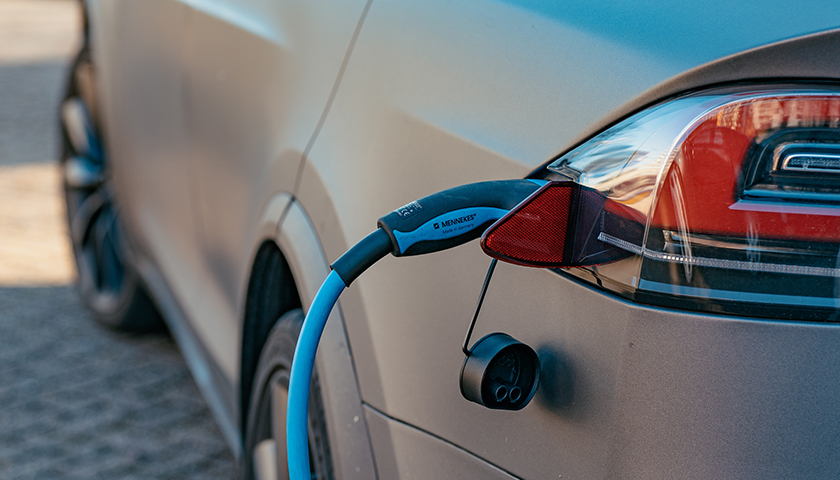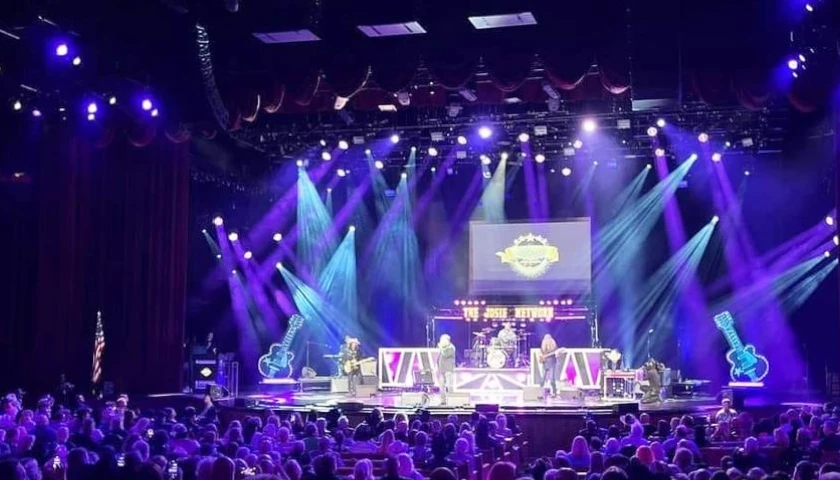by Casey Harper
A new executive order from the Biden administration has accelerated the timeline for electric vehicles and raised questions about the economic impacts of the transition away from gas-powered vehicles.
President Joe Biden signed the executive order Thursday aimed at making 50% of vehicles zero emission in the U.S. by 2030, an aggressive push toward electric vehicles. About 2% of new cars sold each year in the U.S. are currently electric, according to the Pew Research Center.
“The Executive Order also kicks off development of long-term fuel efficiency and emissions standards to save consumers money, cut pollution, boost public health, advance environmental justice, and tackle the climate crisis,” the White House said.
Several auto manufacturers already have expressed their support for the measure, which is not legally binding, though some could not commit to get up to 50%.
“We have to leverage a whole-of-government effort to lift up workers and strengthen American leadership in the clean cars of the future,” Biden said. “To set that all-out effort into motion, I’m signing an executive order with a target of electrifying 50% of all vehicles sold by 2030.”
The order resembles a similar measure taken by California Gov. Gavin Newsom, who issued an executive order last year calling for all new vehicles sales to be electric by the year 2035. Newsom praised Biden’s order Thursday.
“California applauds the Biden Administration’s move to boldly reduce climate pollution from cars, inspired by California’s nation-leading framework,” he said. “The climate emergency demands no less. Today’s proposal will help to clean the air and create a healthier future for our children and our planet. We look forward to continuing our decades-long collaboration with federal partners to build on California’s clean car leadership and deliver the investments needed to support the nationwide build-out of clean vehicle infrastructure.”
Biden’s ambitious timeline raised eyebrows and sparked pushback from critics, who say the plan can only be accomplished by government intervention in the market and create “corporate welfare” for products many middle and lower class Americans cannot afford.
“In as far as EV sales to date have been a reflection of customer demand, that’s great. But EVs have generally been the lifestyle choice of well-off Americans and urbanites,” said Katie Tubb, environmental expert at the Heritage Foundation. “The Biden administration is working to subsidize every aspect of the EV and alternative vehicle market, proposing federal spending on their entire supply chains as well as regulations to shut out their traditional fuel, internal combustion competitors. This is corporate welfare, and the big business-big government caballing could not be more evident than by the representatives of major auto companies at the President’s back to announce his executive order and new fuel efficiency mandates that are sure to shift costs onto their customers.”
Daniel Turner, executive director of energy workers advocacy group Power the Future, argued the order benefits China, which does the majority of electric car manufacturing.
“The rare earth elements in [electric vehicle] batteries are controlled by China, which owns 95% of the market,” Turner said. “Forcing Americans to buy a product that is virtually made in China weakens America. This executive order is a give away to China, to Elon Musk, and to [U.S. House Speaker] Nancy Pelosi, who owns millions of dollars of stock in EV companies. It is a kick in the face for Americans but that seems to be the Biden approach.”
Critics also pointed out that electric vehicles are not without their environmental impact.
“This is to say nothing of the environmental tradeoffs posed by EVs, such as the manufacturing and disposal of EV batteries and where EVs plug in to recharge,” Tubb said. “There is no perfect vehicle or energy resource; they all have tradeoffs and so the more robust and competitive the market, the better for customers.”
Biden has largely ignored his critics, staying on message that the U.S. must quickly embrace electric vehicles to remain competitive. To drive his point home, Biden took an electric Jeep Wrangler for a spin on the South Lawn of the White House.
– – –
Casey Harper is a Senior Reporter for the Washington, D.C. Bureau. He previously worked for The Daily Caller, The Hill, and Sinclair Broadcast Group. A graduate of Hillsdale College, Casey’s work has also appeared in Fox News, Fox Business, and USA Today. Harper contributes to The Center Square.





